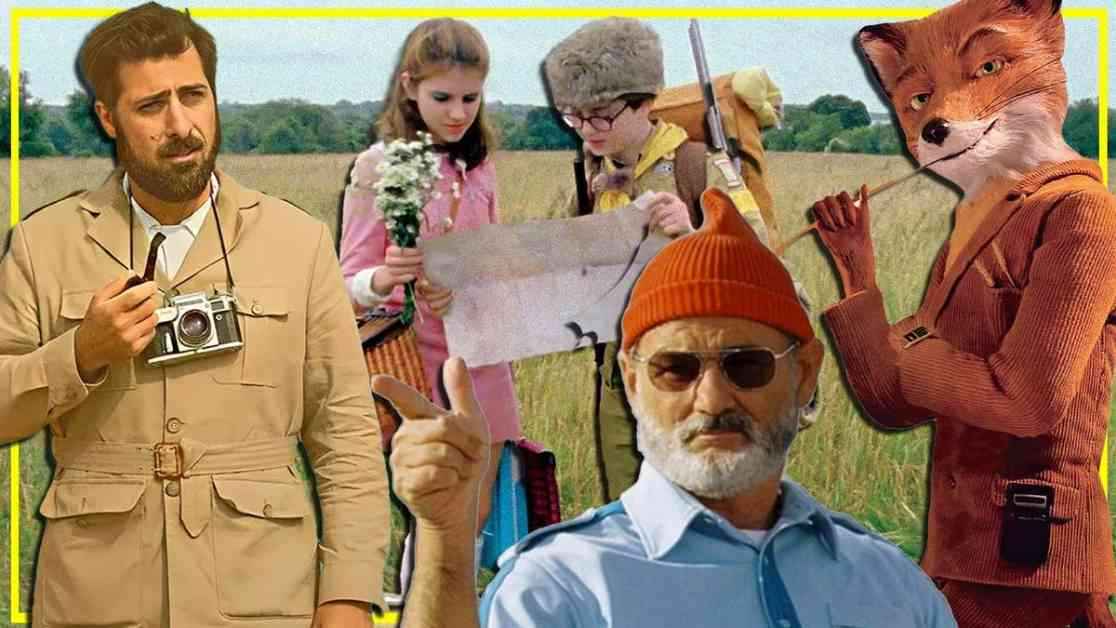Before the acclaimed director releases his 12th film, The Phoenician Scheme, let’s revisit the characters that have defined his legacy and enriched our lives. We watch movies for how they momentarily teleport us to worlds where anything can happen and none of it is our responsibility. It’s the characters that are our vehicles down these cinematic roads paved in broken hearts, therapeutic laughs, and unnecessarily life-threatening stunts by Tom Cruise. The greatest characters in cinema history stay with us because they’re so well-written and acted that we can see ourselves having a drink with them, or dating them, or, in the case of most of Wes Anderson’s best characters, we just want to watch them, in all their colorful eccentricity, live in this world.
Anderson is one of the greatest filmmakers ever, and that’s in no small part because he’s created characters we find simultaneously surreal and relatable, even if we don’t understand why. Why do we admire people like Bottle Rocket’s Dignan (Owen Wilson), who refuse to accept reality, even when it’s slapping them in the face? Why do we sometimes cling to a version of ourselves that no longer exists like Steve Zissou (Bill Murray) in The Life Aquatic with Steve Zissou? Anderson knows why, and he tells us through these unforgettable characters.
### The Unforgettable Characters of Wes Anderson
#### Dignan from Bottle Rocket
We should all strive for the long-term optimism that Dignan (Owen Wilson), the protagonist of Anderson’s first feature film Bottle Rocket, has in his life’s blueprint. However, we probably shouldn’t base a 75-year plan on stumbling up the underworld ladder of criminality. Still, Dignan’s absurdist exaggeration of relatable human emotions—like the fear of mediocrity and the yearning for purpose—became an Anderson trademark that has endeared his characters to us for decades.
While Dignan isn’t as fleshed out as Anderson’s later characters, the depth of his delusion shifts from comedic to cautionary in the film’s final moments. As he sits in prison, his last words—“They’ll never catch me, man. ‘Cause I’m fucking innocent.”—perfectly encapsulate his unwavering belief in his own fantasy. Even in comedy, Anderson creates characters who can tickle our funny bone while simultaneously breaking our hearts.
#### Steve Zissou from The Life Aquatic with Steve Zissou
Steve Zissou (Bill Murray) embodies the tragicomic grandeur that defines Wes Anderson’s best characters—a man clinging to his past glory while barely holding his personal life together. His quest to kill the jaguar shark that ate his best friend is less about science and more about proving he still matters, making lines like “What would be the scientific purpose of killing it?” both hilarious and heartbreaking. His slow-motion strut through his boat the Belafonte, set to David Bowie’s “Queen Bitch,” paints him as a man desperate to maintain his legend, even as the world moves on without him.
Yet in the film’s most vulnerable moment, when he finally sees the shark, his whisper—“I wonder if it remembers me”—turns his vengeance into bittersweet acceptance. Murray brings Zissou to life with a perfect balance of deadpan humor and quiet melancholy, delivering every line with the kind of effortless charisma that makes him both absurd and deeply human. Whether he’s sulking in his wetsuit or rallying his dysfunctional crew, Murray’s presence makes Zissou more than just a parody of washed-up adventurers—he makes him unforgettable.
#### Max Fischer from Rushmore
Max Fischer (Jason Schwartzman) is the blueprint for so many of Wes Anderson’s best characters—an overconfident dreamer, equal parts genius and disaster, whose ambition far outweighs his ability. He strides through Rushmore as if he owns it, despite being one of the worst students in the school, and his belief in his own brilliance is so unshakable that even when he’s failing, he’s still convinced he’s winning. His line, “I saved Latin. What did you ever do?” perfectly captures the delusional self-importance that makes him both hilarious and strangely inspiring.
Like Steve Zissou or M. Gustave after him, Max isn’t just chasing success—he’s crafting his own legend, whether through his impossible aquarium project or his wildly over-the-top Vietnam War play, Heaven and Hell. But Anderson’s best characters aren’t just cartoons; they’re flawed, deeply human figures hiding real pain beneath their quirks. Max’s heartbreak over Miss Cross (Olivia Williams), his crumbling friendship with Herman Blume (Bill Murray), and his desperation to matter in a world that keeps telling him he doesn’t, make him one of Anderson’s most enduring protagonists. And yet, by the end, as he orchestrates one last grand production—not a play, but a reconciliation—he learns that sometimes the grandest gestures aren’t about proving your worth, but about making peace. As “Ooh La La” by The Faces plays and he takes Miss Cross’s hand for a quiet dance, Max joins the legacy of Anderson’s most unforgettable characters—an outsider, a dreamer, and a legend in his own mind, but one we can’t help but root for.

